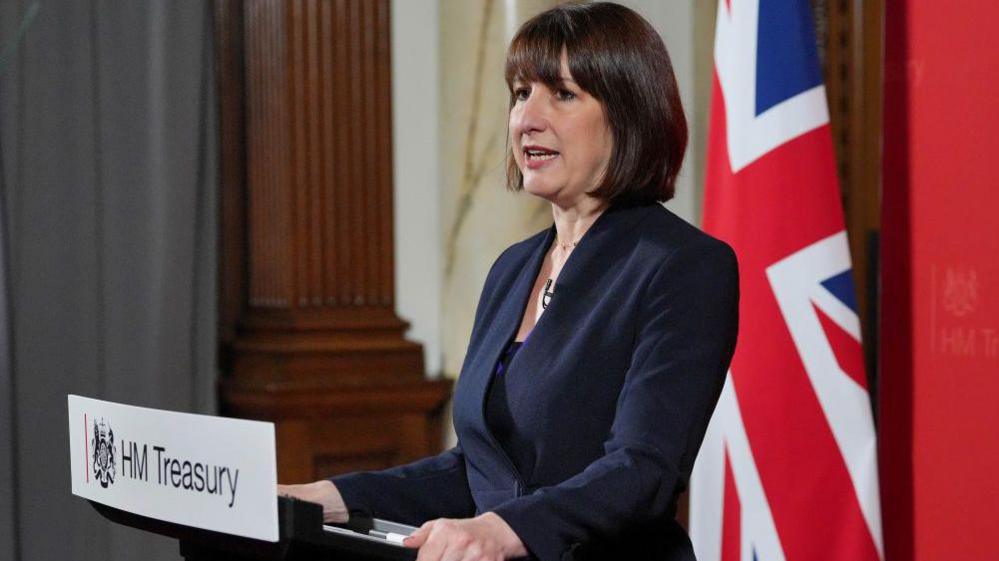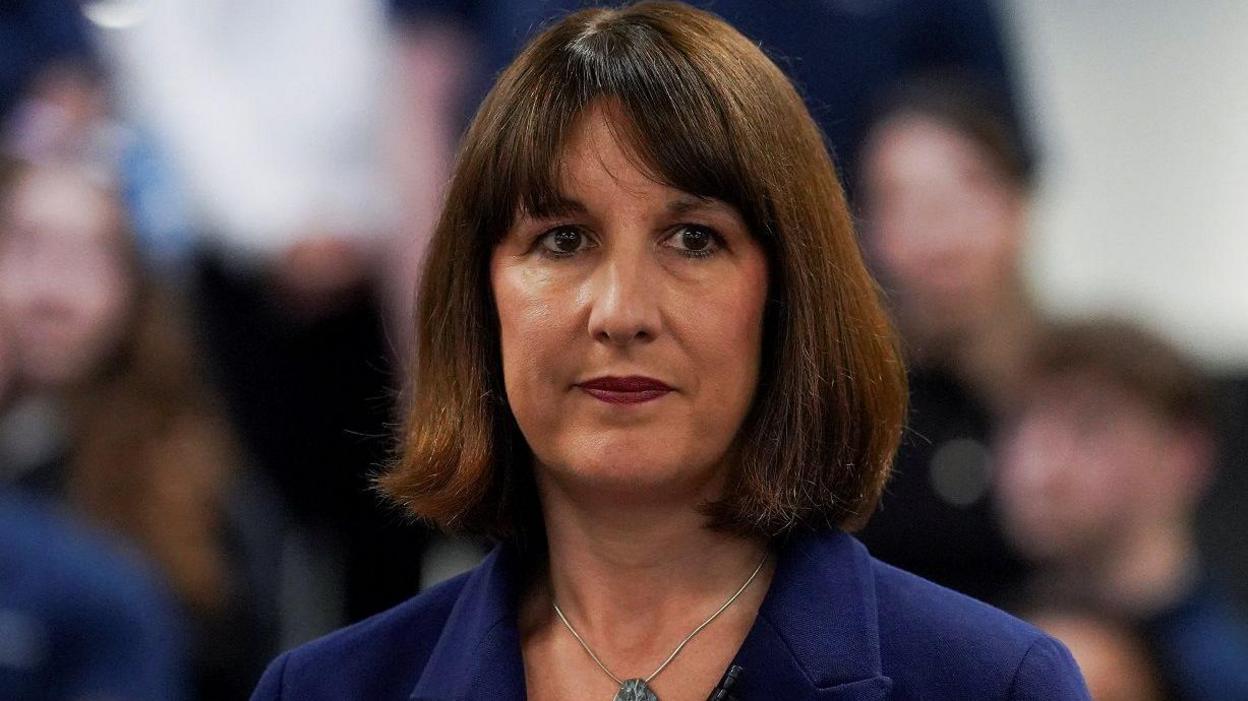Reeves set to axe projects to plug budget shortfall

Rachel Reeves will claim the Tories masked the true state of UK public finances then "ran away"
- Published
The chancellor is set to announce immediate cuts worth billions of pounds, aimed at plugging a gap in the public finances, when she addresses Parliament on Monday.
Rachel Reeves’ plans are expected to include the cancellation of some road and rail projects, a reduction in spending on external consultants and a drive to cut public sector waste.
She will accuse the previous government of “covering up" shortfalls in departmental budgets and then “running away”.
However, the Conservative Party said the chancellor’s message was designed to “con the British public” so that she could raise taxes.
A Treasury internal audit of the public finances will be published on Monday, and is expected to show a further gap of around £20bn between tax revenues coming in and expected spending.
The chancellor will tell Parliament that this requires “immediate action” to restore economic stability and “fix the foundations of our economy”.
Projects that could be paused or cancelled include the road tunnel near Stonehenge and Boris Johnson’s New Hospital programme.
Labour has said it will not borrow to fund "day-to-day costs", which means it would only pay for things using the money it has already raised from tax.
However, Labour has previously said it could borrow to invest, leaving it some wiggle room on projects like HS2.
During the election campaign, the Conservatives made similar commitments on tax and spending.
Economists said at the time neither party could follow their own self-imposed rules without spending cuts or tax rises.
Politics to roar back at Westminster in blame game over funding
- Published29 July 2024
Rachel Reeves' promise to be honest is a risky move
- Published28 July 2024
Are the UK's finances really worse than Labour expected?
- Published27 July 2024
Before the election, leading economists warned that the sums did not add up and that the new government would face a stark choice between raising taxes, cutting spending or abandoning its commitments to reduce debt in the medium term.
But the incoming government has said it found the situation was even worse than it expected, describing it as "catastrophic", with extra demands on the government purse being uncovered as new ministers went through their departments’ accounts with a fine-tooth comb.
Ms Reeves is said to be “genuinely shocked” by some of the findings.
However, she will not suggest at this stage that tax rises will be required.
Instead she will invite the Office for Budget Responsibility to make an assessment of the public finances. She will also kick off the process for a Spending Review, which looks at departmental budgets over the longer term.
Budgets or similar fiscal events will be held only once a year, with Ms Reeves expected to set a date for her first in the autumn.
Insiders suggest that had the chancellor wanted to raise taxes, she would have held an emergency Budget this week, but that instead she will restate manifesto commitments to not raise the rates of personal taxes, including income tax.
Monday's announcement is "about tough spending decisions", Pat McFadden, Chancellor of the Duchy of Lancaster, told the BBC.
"It's true that we knew we'd inherit a tough situation but what we've found in the few weeks since we took office is that it's even tougher because of the things that we've found that weren't revealed before the election."
Michael Saunders, senior adviser at Oxford Economics, thinks there will be "a smaller squeeze on public spending" but one that's "still pretty tough" as well as bigger tax rises.
"I expect that the chancellor will be able to find various examples... of projects that the [previous] government had announced but never funded or underfunded, or which are above budget or behind schedule," he told the BBC's Today programme.
"The chancellor will be able to claim, therefore, that the public finances are even worse than feared."

The tunnel near Stonehenge is one of the projects that could be halted to save money
Ms Reeves is also expected to announce that some public sector workers will be given pay rises in line with the recommendations of the independent pay review bodies.
This would mean above-inflation settlements for teachers, members of the armed forces and prison staff, among others, but would mean finding the money to pay for that too.
The chancellor is said to believe that the cost of funding the deals should be weighed against the cost of the disruption to the economy from strikes and the cost of failing to recruit and retain staff.
The chancellor will also announce a new “Office of Value for Money” aimed at identifying and recommending savings, including in the current financial year, so “poor value spending is cut off before it begins”.
Last week, Home Secretary Yvette Cooper said the Conservatives' plan to remove asylum seekers to Rwanda had cost taxpayers £700m, nearly double the price tag previously in the public domain.
Other departments have identified spending needs not covered by current budget plans. On Sunday, Environment Secretary Steve Reed said his department had found the condition of flood defences to be “far worse than we were led to believe”.
The Conservative Party said the state of the public finances was clear before the election.
Former Tory chancellor Jeremy Hunt accused the new government of "peddling nonsense". The books were "wide open and what they show is a healthy, growing economy”, he said.
And shadow transport secretary Helen Whately told BBC Breakfast: "Labour took over a strong economy - the fastest growing in the G7, historically low unemployment - this left them in a positive position."
She said Labour was "undoubtedly setting a narrative" to put up taxes.
Correction 3 September: The original headline on this article "Reeves to axe projects to plug budget black hole" was corrected shortly after publication on 29 July to add quotation marks around the words ‘black hole’ to convey that the words were a claim from the Government.
Related topics
- Published14 February

- Published21 February
